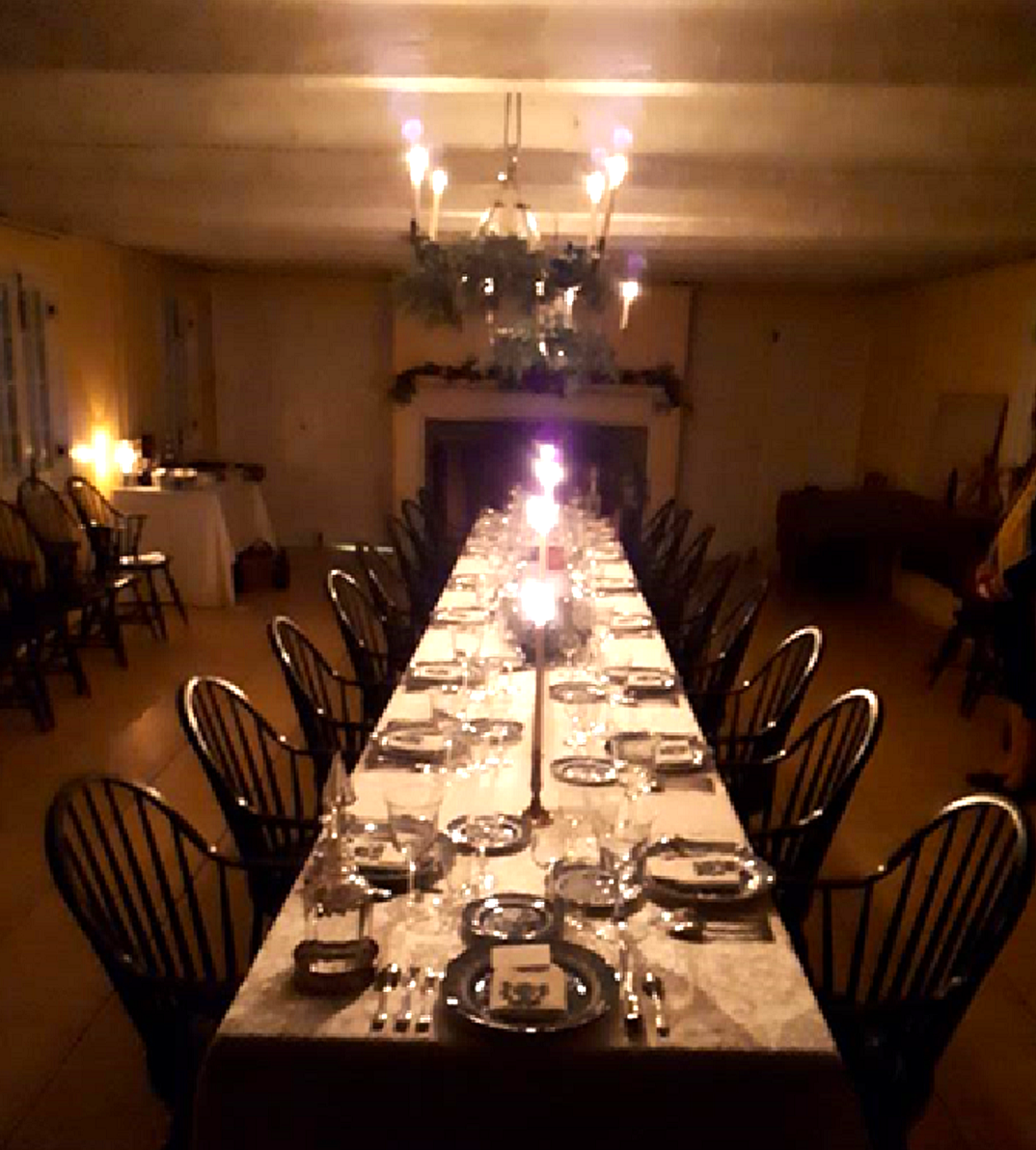|
By Tom Fournier A visit to Fort George National Historic Site in Niagara-On-The-Lake, Ontario, Canada is sure to include the Officers’ quarters. Displayed on the wall in the dining room is a plaque detailing the Mess Rules for the 41st Regiment. They can also be found in the history section of our website here. The reading of the rules is fascinating. There certainly seems to be a preoccupation with a proper accounting of the wine consumed and the management of fines (to be paid in bottles of wine). I find it strange that there are no strictures about discussions surrounding politics and religion. It is also disappointing that there no limitations on feats of daring or animals brought into the mess (although maybe for the amusement of those in the mess perhaps it is not disappointing?) It is nice to see that the management of Betts (sic) are covered. What I find more interesting is the background as to why these rules were available to researchers so that they could be posted in the recreated dining room at Fort George. These mess rules are in fact found in the archives of the United States of America in a Department of State file for Miscellaneous Intercepted Correspondence 1789 – 1814, British Military Correspondence, “War of 1812 Papers”. In October of 1813 as part of the aftermath of the naval Battle of Lake Erie and the resulting resounding American victory (U.S.N. Master Commandant Oliver Hazard Perry, “We have met the enemy and they are ours”), the British forces under Major General Henry Proctor had begun a retreat from the area of Amherstburg, Upper Canada and Detroit, Michigan. Their withdrawal was to go up the Detroit River to Lake St. Clair and then up the Thames River.
Prior to his promotion to Major General, Procter was the Commanding Officer of the 41st Regiment. The force under his command was predominantly members of the 1st Battalion and some members of the 2nd Battalion of the 41st Regiment. On October 5th, 1813 the American pursuit had overrun elements of the baggage train and forced the British to halt and stand to fight. This horribly managed retreat and defense resulted in a very quick American victory known as the Battle of the Thames or the Battle of Moraviantown with substantial numbers of the 41st Regiment captured. Another outcome of this battle was the death of the Shawnee leader Tecumseh. Part of the baggage captured was the personal effects and correspondence of Major General Proctor. It is because of this captured baggage that we have the Mess Rules of the 41st Regiment which were in among his papers. But not often seen was another accompanying piece of correspondence, which was a Regimental Order issued to the 41st Regiment. The Mess Rules were a supporting document to his Regimental Order. The Regimental Order follows. I find it interesting as it illuminates the relationship that Procter (then the Commanding Officer of the 41st Regiment) had with his Officers. It also offers some insights into his prickly character (which I think may be a good subject for a future blog!) _________________________________________________________________________________________________ Regimental Order Fort George 5 October 1808 The Commanding Officer actuated solely by zeal for the good of the Regiment, feels it highly expedient to give the Officers particularly those at Fort George some information and directions for their future guidance in their conduct towards their Commanding Officer which will be found more agreeable to the Virtue of the Service and the Articles of War, than the Opinions which seem for some time past to have directed their conduct. He has to inform them that disrespect to the Commanding Officer of the Regiment is as contrary to the Articles of War and General Orders in Officers composing a Mess, as it would be on a parade or any other situation. He desires that on future occasion they will depute or sanction any Individual among them, whatever Mess title they may choose to give him, to send him a written reminder summons by the Mess’ Waiter as has been lately done, and which, he received whilst performing the duty of inspecting the Barracks with the Acting Barracks Master, announced in the Regimental Orders, and on the Morning Parade, in the presence of every Officer and which, from the severe Sickness of the Barrack Master had not been performed for near half a year. It betrays an unpardonable ignorance of the Service and no sense of Subordination and high disrespect in any body of Officers to summon their Commanding Officer to attend their Meetings, instead of respectfully requesting to know when his attendance would be convenient. He has also to inform them that no other authority than the Commanding Officer can call a Meeting of any body of Officers. He has further to desire that on occasions where it may be wished to prefix his name in attendance (?) that he may be previously committed, and not hitherto , the same fixed for his consequent attendance; where as the Mess may be desirous of making any communication as required that it be done by the Senior Officer designated by the Mess and not by a corporate or Municipal Officer as he acknowledges no Independent body over the Corps he Commands. ______________________________________________________________________________________________ “War of 1812 Papers” of the Department of State 1789 – 1815 Roll 7 Miscellaneous Intercepted Correspondence 1789 – 1814 British Military Correspondence Microcopy No. 588
0 Comments
Your comment will be posted after it is approved.
Leave a Reply. |
AuthorsThese articles are written and compiled by members of the 41st Regiment Living History Group. Archives
January 2023
Categories |
